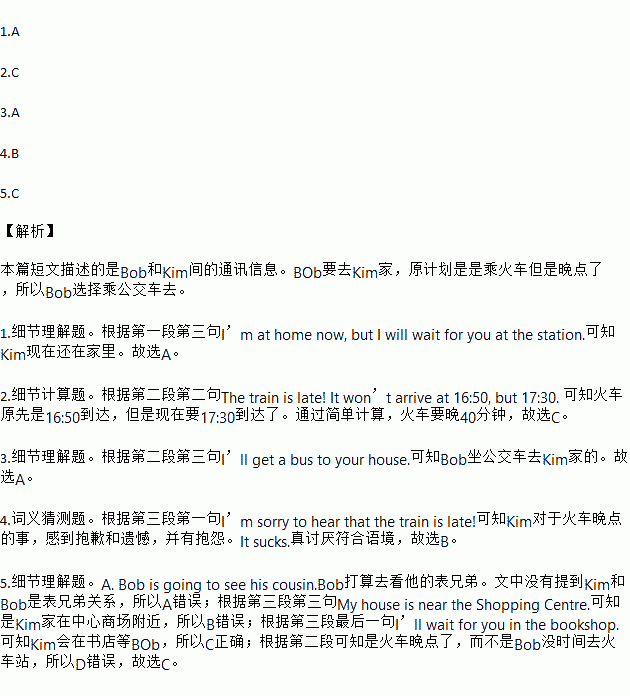题目内容
Hi Bob, Where is your train? What time will it arrive (到达)? I’m at home now, but I will wait for you at the station. See you soon! Kim |
Hi Kim, The train is late! It won’t arrive at 16:50, but 17:30. Don’t wait for me at the station. I’ll get a bus to your house. What’s the bus number? See you later! Bob |
Hi Bob, I’m sorry to hear that the train is late! It sucks! My house is near the Shopping Centre. You can take the No. 16 bus and then get off at the Red Star Bookshop. It takes about twenty minutes. I’ll wait for you in the bookshop. See you! Kim |
1.Where is Kim now?
A. At home. B. At the station.
C. On the bus. D. On the train.
2.The train will be ________ minutes late.
A. 20 B. 30 C. 40 D. 50
3.Bob will get to Kim’s house from the station ________.
A. by bus B. by car C. by bike D. by taxi
4.The underlined words “It sucks” mean “________” in Chinese.
A. 好幸福 B. 真讨厌 C. 不可能 D. 有道理
5.From the information we can learn that ________.
A. Bob is going to see his cousin
B. Bob lives near the Shopping Centre
C. Kim will wait for Bob in the bookshop
D. Kim has no time to go to the train station
 孟建平小学滚动测试系列答案
孟建平小学滚动测试系列答案 黄冈天天练口算题卡系列答案
黄冈天天练口算题卡系列答案

